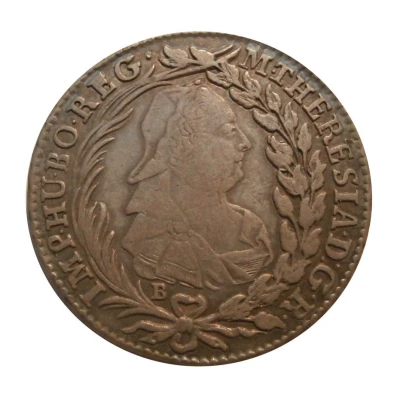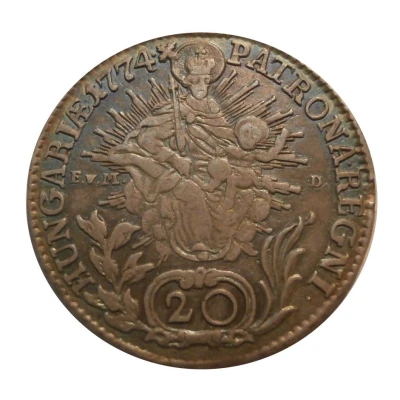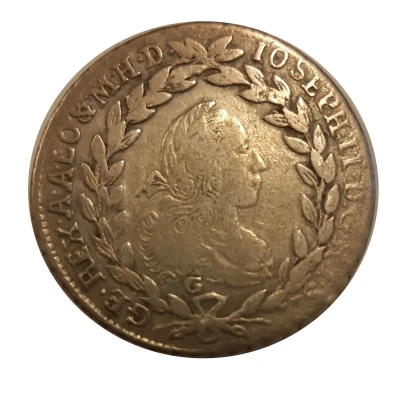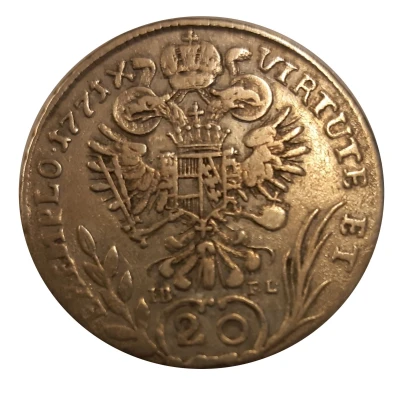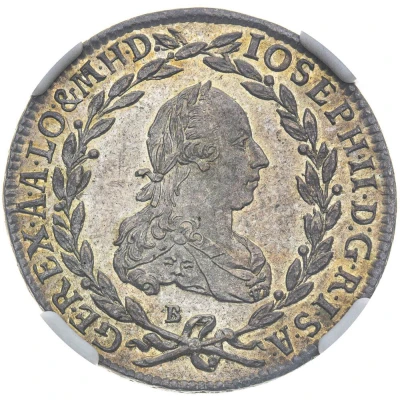
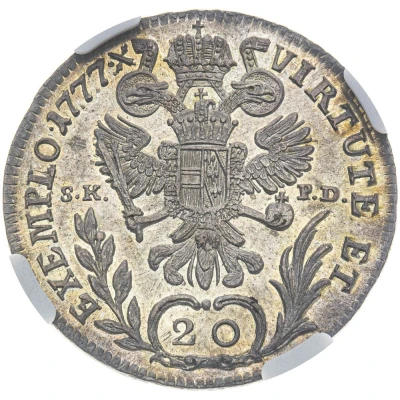

© stehlik (CC BY-SA)
20 Kreuzers - Joseph II, as co-ruler Körmöcbánya/Kremnitz
| Silver (.583) | 6.68 g | 29 mm |
| Issuer | Hungary |
|---|---|
| Emperor | Joseph II (II. József) (1765-1790) |
| Type | Standard circulation coin |
| Years | 1767-1780 |
| Value | 20 Kreuzers (Krajczár) (⅓) |
| Currency | Austro-Hungarian Florin (1754-1857) |
| Composition | Silver (.583) |
| Weight | 6.68 g |
| Diameter | 29 mm |
| Shape | Round |
| Demonetized | Yes |
| Updated | 2024-10-05 |
| Numista | N#317550 |
|---|---|
| Rarity index | 90% |
Reverse
Crowned double-headed imperial eagle with arms of Austria and Lorraine. Value in a frame below, surrounded by laurel and palms. Mintmaster's mark divided by the tail feathers.
Script: Latin
Lettering:
VIRTUTE ET EXEMPLO · 1768 X
S.K. P.D.
20
Translation: Virtue and example
Comment
This coin is wrongly listed in Krause under Austria as KM#2067.1S.K. - P.D. = Sigismund Klemmer von Klemmersberg and Pascal Damiani: Mint Masters
E.V.M. - D. = Ignatz Krammer Edler von Münzburg and Pascal Josef von Damiani: Mint Masters
"X" after the year in the legend indicates values comply with the Convetionsthaler.
Interesting fact
One interesting fact about the 20 Kreuzers coin from Hungary featuring Joseph II as co-ruler is that it was minted during a time of significant economic and political change in the country. The coin was issued in the late 18th century, a period when Hungary was experiencing a growth in trade and commerce, as well as a shift towards a more centralized government. The coin's design, featuring Joseph II on one side and the Hungarian coat of arms on the other, reflects the political and cultural influences of the time. Additionally, the use of silver in the coin's minting process was a deliberate choice, as it was a valuable and widely accepted metal at the time, and its use in coinage was seen as a symbol of the country's economic prosperity.
